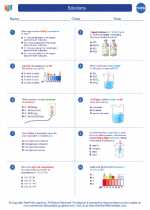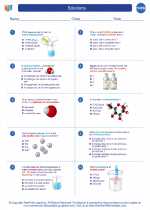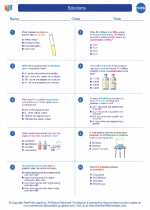Physical Geography
Physical geography focuses on the natural features and processes of the Earth. This includes the study of landforms, climate, vegetation, and natural resources.Key Concepts:
- Landforms: Understand the different types of landforms such as mountains, plains, plateaus, and valleys. Learn how they are formed and their impact on the environment.
- Climate: Explore the factors that influence climate such as latitude, altitude, and proximity to water bodies. Understand the different climate zones and their characteristics.
- Vegetation: Study the various types of vegetation and their distribution across the world. Learn about the factors that influence the growth of different plant species.
- Natural Resources: Identify and analyze the distribution of natural resources such as water, minerals, and forests. Understand the significance of these resources for human populations and the environment.
Human Geography
Human geography focuses on the relationship between human societies and their environment. It covers topics related to population, culture, urbanization, and economic activities.Key Concepts:
- Population: Study population distribution, growth patterns, and demographic factors. Analyze the impact of population changes on the environment and society.
- Culture: Explore different aspects of culture including language, religion, customs, and traditions. Understand how culture shapes human interactions with the environment.
- Urbanization: Examine the growth of cities, urban planning, and the impact of urban development on the environment. Learn about issues related to urban sprawl, infrastructure, and sustainability.
- Economic Activities: Understand the different economic activities such as agriculture, industry, and services. Analyze the spatial distribution of economic activities and their environmental implications.
Environmental Geography
Environmental geography focuses on the interaction between human activities and the natural environment. It addresses issues such as environmental degradation, conservation, and sustainability.Key Concepts:
- Environmental Degradation: Study the causes and consequences of environmental degradation including deforestation, pollution, and climate change. Explore the impact of human activities on the environment.
- Conservation: Learn about conservation efforts aimed at protecting natural resources and ecosystems. Understand the importance of biodiversity and the role of conservation in sustainable development.
- Sustainability: Explore the concept of sustainability and its application to human activities. Analyze strategies for sustainable resource management and environmental protection.
[Geography] Related Worksheets and Study Guides:
.◂Chemistry Worksheets and Study Guides High School. Solutions
The resources above cover the following skills:
CHEMISTRY
Matter and Its Interactions
Use mathematics and computational thinking to express the concentrations of solutions quantitatively using molarity.
Develop and use models to explain how solutes are dissolved in solvents.



